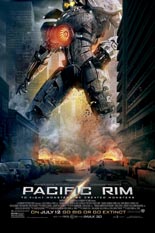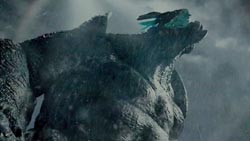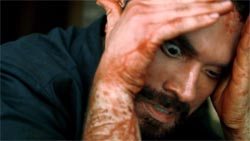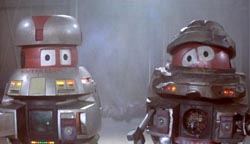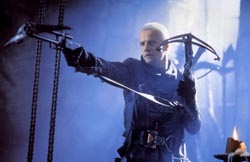
 With Antiviral, Brandon Cronenberg — spawn of David — makes his feature-film debut as both writer and director. The result? Well, like father, like son! That’s only a bad thing if Papa Cronenberg’s works of body horror give you the Shivers.
With Antiviral, Brandon Cronenberg — spawn of David — makes his feature-film debut as both writer and director. The result? Well, like father, like son! That’s only a bad thing if Papa Cronenberg’s works of body horror give you the Shivers.
In a near-future world where celebrity obsession has grown to become unhealthy in the literal sense, The Lucas Clinic makes a mint by bringing its patients closer to their paparazzi-chased idols. For big bucks, its reps inject clients with viruses taken directly from the celebs. That way, you, too, not only can contract herpes simplex like the gorgeous Hannah Geist (Sarah Gadon, Cosmopolis), but get it as if she gave it to you herself! Swoon!
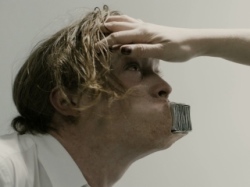 It is the job of clinic rep Syd March (Caleb Landry Jones, The Last Exorcism) to administer these injections (the needles penetrating flesh shown in unflinching close-ups, of course). So lucrative is his gig that he dabbles in freelance, swiping inventory to sell on the black market, including to a butcher shop that grows meat from the stars’ muscle cells. March is good as what he does; unfortunately, he becomes the victim of his own sales pitch.
It is the job of clinic rep Syd March (Caleb Landry Jones, The Last Exorcism) to administer these injections (the needles penetrating flesh shown in unflinching close-ups, of course). So lucrative is his gig that he dabbles in freelance, swiping inventory to sell on the black market, including to a butcher shop that grows meat from the stars’ muscle cells. March is good as what he does; unfortunately, he becomes the victim of his own sales pitch.
To that end, Jones’ appearance as a pale, emaciated Macaulay Culkin benefits the movie as his body deteriorates, in some of the gnarliest-looking ways imaginable. No doubt Dad is proud of Brandon keeping the family business going. In terms of a debut, Antiviral is more accomplished and assured than his father’s, yet it wouldn’t exist had the elder Cronenberg not spent the majority of his career exploring the ways in which our organs revolt (in both meanings of the word) against us, played out and splayed out against a sterile backdrop.
Antiviral becomes less aggressive in its second half — call it the Malcolm McDowell Effect — but at least it’s about something. —Rod Lott

